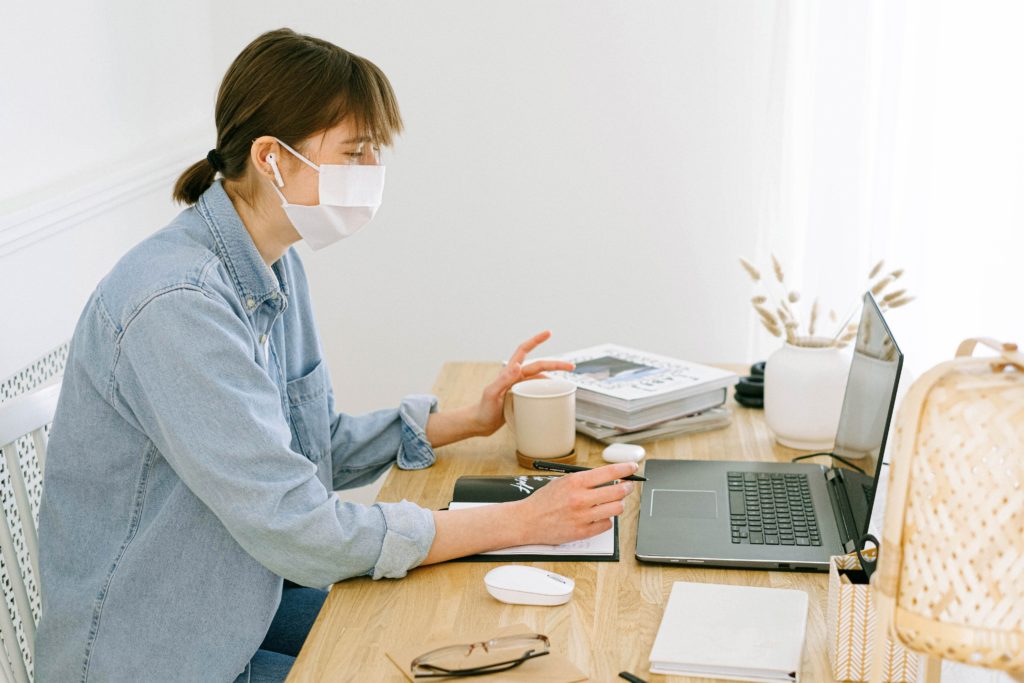Workplace Stress during COVID-19 Pandemic? Like many of us, you may have been working from home since the start of the COVID-19 pandemic. Now we are being encouraged to return to our offices in an attempt to get the economy back on track and to get used to a different way of living in the ‘new normal’. But fear and anxiety about this and other related issues in the office can be overwhelming
How Common is Workplace Stress?
Stress at work is common. It’s very common. According to the Health & Safety Executive, stress affects 20% of the working population, it’s the single biggest cause of workplace sickness in the UK and over 10.5m working days are lost to stress each year – costing British employers around £1.3bn.
In addition, the NHS suggests that one in five of all GP visits are aligned to psychological issues, including stress, anxiety and depression. The occupations with the highest rates are social work, teaching and public administration.
All these figures could increase significantly due to workplace stress during COVID-19 pandemic
What are the causes of Workplace Stress
There are a whole host of reasons why you may feel out of control or stressed at work in addition to worrying about COVID-19 –
Heavy & Growing Workload • More Responsibility • Longer Hours • Bullying, Harassment & Ill-Discipline • Fears of Redundancy • Lack of Prospects or Job Security • Poor Hierarchical Support
How to Cope
How you cope with workplace stress will affect your well-being, the well-being of the people you care about, your workplace, and your community. During this gradual return to work, it is critical that you recognize what stress looks like, take steps to build your resilience and manage job stress, and know where to go if you need help.
There are some very usual tips and guidance in a recent article from Centers for Disease Control & Prevention.
Follow these tips to build resilience and manage job stress.
- Communicate with your coworkers, supervisors, and employees about job stress while maintaining social distancing (at least 6 feet).
- Identify things that cause stress and work together to identify solutions.
- Talk openly with employers, employees, and unions about how the pandemic is affecting work. Expectations should be communicated clearly by everyone.
- Ask about how to access mental health resources in your workplace.
- Identify those things which you do not have control over and do the best you can with the resources available to you.
- Increase your sense of control by developing a consistent daily routine when possible — ideally one that is similar to your schedule before the pandemic.
- Keep a regular sleep schedule
- Take breaks from work to stretch, exercise, or check in with your supportive colleagues, coworkers, family, and friends.
- Spend time outdoors, either being physically active or relaxing.
- If you work from home, set a regular time to end your work for the day, if possible.
- Practice mindfulness techniques
- Do things you enjoy during non-work hours.
- Know the facts about COVID-19. Be informed about how to protect yourself and others. Understanding the risk and sharing accurate information with people you care about can reduce stress and help you make a connection with others.
- Remind yourself that each of us has a crucial role in fighting this pandemic.
- Remind yourself that everyone is in an unusual situation with limited resources.
- Take breaks from watching, reading, or listening to news stories, including social media. Hearing about the pandemic repeatedly can be upsetting and mentally exhausting
- Connect with others. Talk with people you trust about your concerns, how you are feeling, or how the COVID-19 pandemic is affecting you.
- Connect with others through phone calls, email, text messages, mailing letters or cards, video chat, and social media.
- Check on others. Helping others improves your sense of control, belonging, and self-esteem. Look for safe ways to offer social support to others, especially if they are showing signs of stress, such as depression and anxiety.
- If you feel you may be misusing alcohol or other drugs (including prescription drugs) as a means of coping, reach out for help.
- If you are being treated for a mental health condition, continue with your treatment and be aware of any new or worsening symptoms.
How I Treat Stress
At Behavioural Freedom, I use a skills-based model for treating stress. During our sessions, I will teach you relaxation techniques and helpful ways in which you can fundamentally and positively change the way you behave, think, act and react. It’s also important to note here that you can’t be stressed when you are in a relaxed state. The skills you’ll learn during your time with me will be vital to both your on-going treatment and perhaps more so as you leave my care.
A combination of Applied Relaxation and Cognitive Behavioural Therapy is considered by the British Medical Journal to be one of the most effective therapies to combat stress and put you on a path to having a positive mind-set and being able to live life to the fullest, free of worries. By combining both and adding in the element of hypnosis, I believe this is the most effective, pragmatic and relevant approach to the treatment of stress.
If you’re experiencing Workplace Stress during COVID-19, please contact me today to start the journey back to behavioural freedom.

